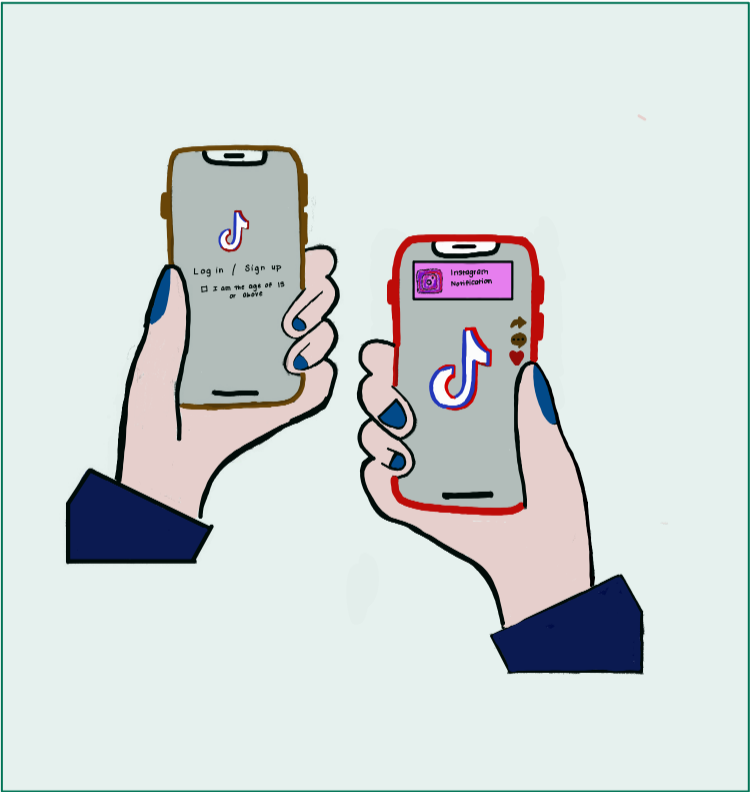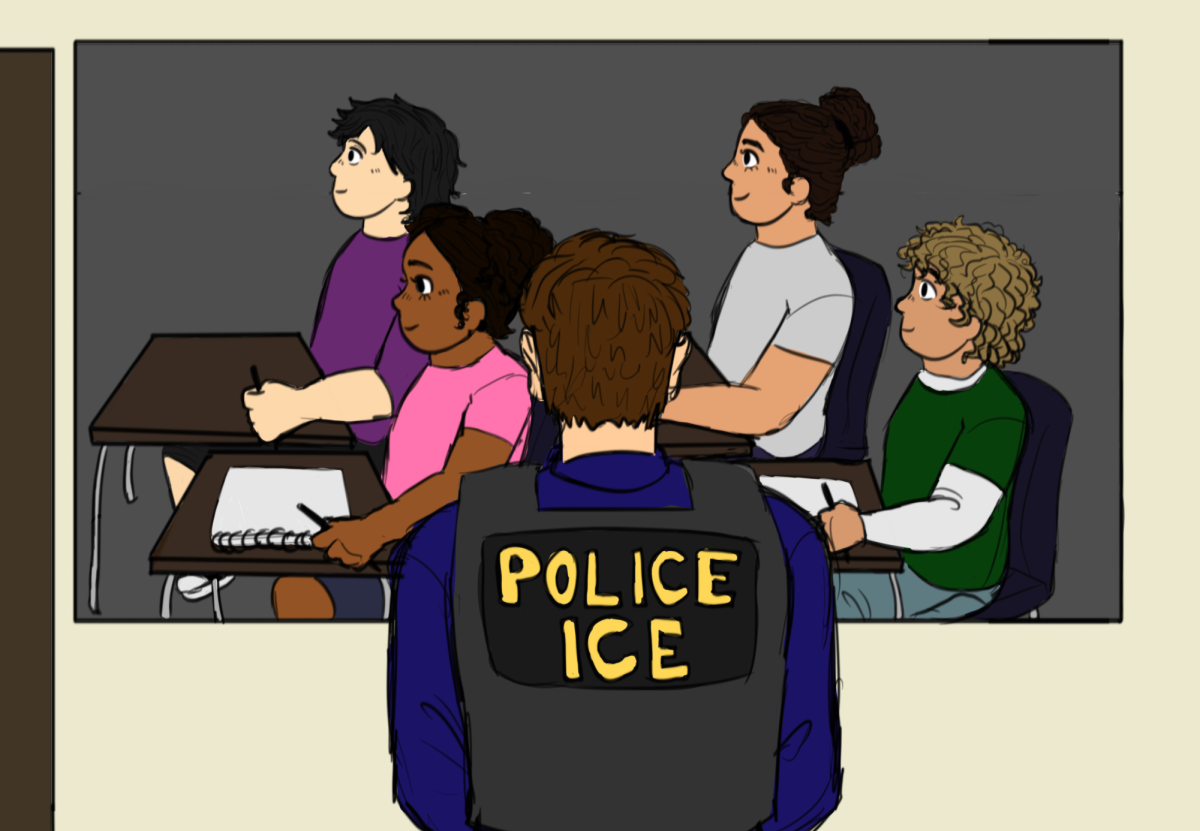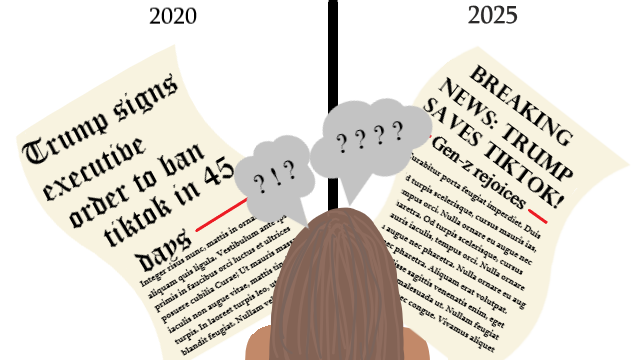One takes out their laptop and homework, prepared to work, when suddenly an Instagram notification pops up on their phone. Thinking it will only take a moment to check, they end up mindlessly scrolling through social media for hours. Before they realize it, valuable time has slipped away. This is one of countless scenarios people encounter due to addictive social media platforms.
As phones have started to become more accessible and integrated into daily lives they have become addictive sources that cause chaos as a student. According to the findings from The Baker Center, “A Tech-Based World: The Risks and Benefits of Social Media and Screentime”, as a result of the COVID-19 pandemic people are relying more on the internet for a wide range of activities. This dramatic rise in phone usage has transformed how students connect with others and access information, marking a major shift in our societal habits and interactions.
Given this and following numerous issues that have emerged, students should face certain restrictions on their phone usage. Restrictions and ruling towards social media offers protection from online child predators and the development of compulsive behaviors. As a result, California has taken on the act of signing a new bill to protect minors from addictive social media following the new bill from Florida and other states in the U.S..
As outlined by a Route Fifty article, “New Florida law bans kids under 14 from social media” on March 25, Florida Governor Ron DeSantis signed into a bill that prohibits minors under the age of fourteen from obtaining accounts on social media platforms without protective restrictions. This marked the first instance of a state law being enacted in this category, becoming a starting point for others.
Due to this bill, other states are also taking in consideration of the harms that social media have been causing, leading them to also pass bills and restrictions for social media. States such as Ohio, Utah, Arkansas and California placed it to be mandatory for the increase in privacy protections for children using social media in order to ensure the safety of minors online.
According to a Squire Patton Boggs article, “Protecting Kids Online: Changes in California, Connecticut and Congress – Part I”, the new bill prohibits notifications from social media platforms during certain hours. During the hours between twelve a.m. to six a.m. and eight a.m. to three p.m. on weekdays, students will not receive any notifications unless there is parental consent. This allows students to dedicate more time to studying and sleep instead of getting distracted by notifications during the night and throughout school days.
Furthermore, restrictions also include default setting of ‘private mode’ towards accounts of minors. This ensures that only the users connected to the minor on the platform can view or respond to the minor’s content, providing a layer of protection. While this enhances privacy for minors, it also highlights the need to address broader concerns about online behavior, particularly regarding the addictive design features.
Additionally, others have also taken into consideration the user engagement feature elements for individuals who spend over two hours online. As indicated by Edsource, “California acts to protect children from ‘addictive’ social media”, there are additional prohibitions that prevent companies from stealing children’s personal information. Such measures are beneficial for minors as their information, such as their location, will not be collected or sold.
Many are aware of the detrimental effects that social media addiction can have on their children, including isolation from human interaction, increased anxiety and countless hours squandered late into the night, to name a few. Moreover, this protects children from purposely designed features that are known to feed destructive habits.
Further into the bill, as reported by the New York Times, “Florida Has Barred Kids’ Using Social Media, but It Won’t Be That Simple”, it is required that those under sixteen must have parental permission before accessing the ability to open an account of their own. These two factors allow a more precautionary perspective of obtaining a social media app and being beneficial to minors.
On the other hand, in Florida restrictions are more stringent than California when it comes to regulating internet access to minors. Additionally, “when you regulate access to social media, you’re regulating access to speech, and the First Amendment binds the government to protect the free-speech rights of children as well as adults.” Thus, the creation of the bill is to look out for the safety of children during this generation filled with the internet and social media.
Overall, the bill implementing social media restrictions can significantly benefit individuals, particularly students, by reducing the risk of addiction. By limiting the access on social media minors obtain, it encourages face-to-face interactions, improves focus, enhances time-management, fixes sleeping patterns and improves academic performance. Ultimately, restricting social media helps foster a healthy balance between online activity and real-life connections.








